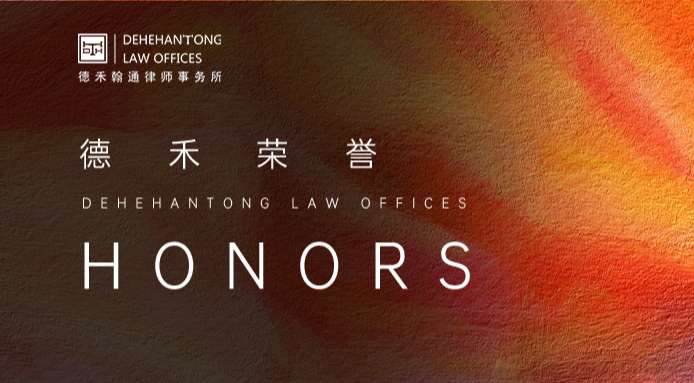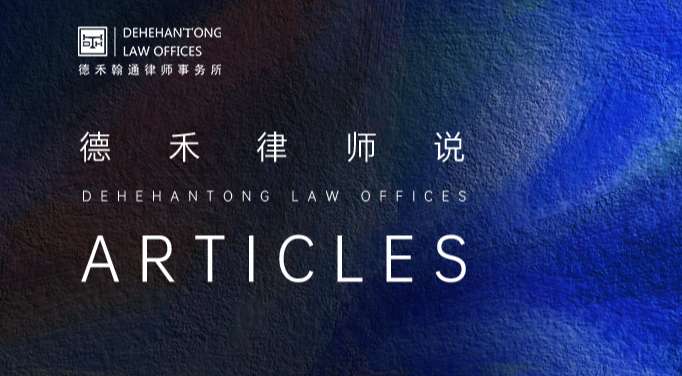Key points of communication regarding the substantive information of the case during the pre-arrest meeting
During the investigation stage, since lawyers are not allowed to review case files, it is particularly important for them to have a comprehensive understanding of the case, how to effectively meet with the criminal suspect and how to communicate with the public security authorities, as well as the formulation and adjustment of the defense plan. Except for cases involving crimes endangering national security and terrorist activities, where meetings during the investigation period require permission from the investigation authority, lawyers can make appointments for meetings after obtaining the authorization materials. This article focuses on the key points of communication regarding the substantive information of the case during an effective meeting before the application for arrest is made.
Because the meeting time is often limited, and lawyers should try their best to achieve a more efficient and thorough exchange of information with the criminal suspect during the meeting. Therefore, it is suggested that the lawyer's meeting be conducted in a combination of questions and answers. At the first meeting, the lawyer also needs to consult the criminal suspect's opinion on whether to confirm the commission. However, it is suggested that the inquiry about whether to entrust be placed at the end of the meeting. Only when lawyers do a solid job in communicating with the criminal suspect before the meeting and fully exchange defense opinions can they gain the trust of the criminal suspect and eventually complete the commission. Before a case is referred for arrest, during the first meeting with a lawyer, the following key points should be emphasized regarding the substantive information of the case:
PART.01
Understand the charges that the public security organs have investigated, determine the charges to be investigated and the direction of the investigation
At this stage, in addition to the charges recorded in the criminal detention notice, the lawyer should communicate with the criminal suspect during the meeting to determine whether the criminal suspect may be suspected of other charges in the subsequent investigation by the public security organ, the possible adjustment of the investigation direction by the investigation authority in the future, and the charges that the investigation authority intends to add, etc.
Given that the charges listed in the criminal detention notice are those involved in the criminal suspect discovered in the early stage of the investigation, they are often limited. As the investigation work progresses, the investigation direction gradually becomes clear and may even be adjusted. The criminal suspect may be suspected of other charges.
Lawyers should provide comprehensive legal consultation on the charges that the criminal suspect has been involved in and may be involved in.
PART.02
Understand the facts of the case, including objective behaviors, subjective states, criminal forms, etc
To communicate the facts of the case with the criminal suspect, the lawyer should focus on comprehensively listening to the case information and the criminal suspect's defense from aspects such as the criminal suspect's objective behavior, subjective state, criminal form, what statutory sentencing circumstances and discretionary sentencing circumstances are present. At the same time, the lawyer should inquire about the evidence or clues of evidence that the criminal suspect can support the relevant defense for subsequent use in the defense.
PART.03
Understand the situation of being arrested
During the investigation stage, lawyers are not allowed to review the case files. However, lawyers need to determine whether the determination of the suspect's appearance at the scene is consistent with the actual situation. Sometimes, the incident details or circumstances described may not be consistent with the facts. The reasons for the inconsistency may be due to the incomplete or inaccurate textual description of the surrender information by the specific case handler, or it may be caused by the inconsistency between the standards for determining whether it constitutes (is regarded as) voluntary surrender and those of the judicial and procuratorial organs, or it may be due to the insufficient evidence that is conducive to determining that the criminal suspect voluntarily surrendered. Therefore, during the investigation stage, regarding the situation of the suspect's surrender, the lawyer must verify it closely with the suspect and accurately determine whether the suspect may have surrendered himself (or be regarded as having surrendered himself) based on the comprehensive information.
If, after communicating with the criminal suspect and the public security authorities, the lawyer determines that the determination of the circumstances of the surrender is inaccurate, the lawyer should collect relevant objective evidence and submit the objective evidence and related evidence clues to restore the true circumstances of the surrender in a timely manner and strive for the determination of the circumstances of self-surrender during the investigation stage.
PART.04
In joint crime cases, understand the situation of co-defendants
In cases of joint crimes, during the meeting, lawyers must focus on understanding the specific actions committed by the criminal suspect, the specific division of labor among the co-conspirators, the role each co-conspirator plays in the joint crime or their position within the joint crime structure, whether the common criminal intent was formed before or during the event, the profit or share of the spoils of each co-conspirator, the order in which each co-conspirator is arrested, and whether there are any people at large. To have a comprehensive understanding of the overall situation of joint crimes; Furthermore, make judgments on the nature of the suspect's behavior, the possible range of statutory penalties, and the probability of successfully applying for bail pending trial during the investigation stage.
PART.05
Understand the situation of meritorious service
Lawyers need to communicate with criminal suspects to understand whether they have committed meritorious acts and whether it is possible to identify the circumstances of their meritorious deeds in the future. Lawyers should inform criminal suspects of the standards for recognizing meritorious service in practice to prevent them from missing the opportunity to report and expose or even arrest relevant criminal suspects during the interrogation due to their unclear understanding of what actions can be recognized as meritorious service.
PART.06
Understand the possible willingness to return or compensate
In cases where there may be scenarios of compensation or refund, lawyers need to communicate with the criminal suspect to understand whether he has the willingness to compensate or refund, the extent of his ability to do so, the economic situation of his family, and the possible willingness of his family members. They should also explain to the criminal suspect that compensation or refund may have a lenient effect on sentencing. After the meeting, the lawyer should communicate the criminal suspect's attitude and thoughts regarding compensation to the family to help the criminal suspect or the family achieve compensation, so as to reach a criminal settlement and ultimately achieve a lenient sentence.
PART.07
Interpret the possible charges involved, the criteria for conviction, sentencing circumstances, etc
Lawyers need to explain to criminal suspects the possible charges they may be involved in, the jurisdiction of the case's grasp of the criteria for conviction, possible sentencing circumstances, and possible sentencing ranges. In addition, for statutory crimes, it is also necessary to attach importance to the distinction between criminal violations and administrative violations. Just because a party has committed an illegal act does not mean they are suspected of committing a crime. The key lies in determining whether the party's actions and the harmful consequences have reached the threshold for criminalization. The aim is to determine whether a specific act is merely an administrative violation without the need to pursue criminal responsibility.
PART.08
Understand the record situation during the investigation stage (whether to sign or not)
Lawyers need to understand how many times the criminal suspect has made statements since his detention, the content of each statement, and the suspect's responses. They also need to confirm whether the suspect has signed after reviewing the statements.
In actual case handling, lawyers may hear complaints from criminal suspects that due to nervousness or being urged, they sign the interrogation record without carefully reading it. In such cases, lawyers must remind criminal suspects that they can only sign after thoroughly reviewing and verifying the content of the record; otherwise, it will be detrimental to themselves and the subsequent defense. Because signing represents the suspect's approval of the above-mentioned record content, if there is any inconsistency between the record content and the actual situation, it will be very difficult for the lawyer and the suspect themselves to overturn the previous record content in the subsequent defense, unless it is said that the interrogation record is illegal evidence or defective evidence and cannot be supplemented or reasonably explained, then it may not be accepted.
PART.09
Communicate the defense plan for the investigation stage
Based on the communication of the substantive information of the case from the first to the eighth points mentioned above, the lawyer needs to make a preliminary plan for the defense scheme before requesting arrest and listen to the opinions of the criminal suspect.
Recommended Information
-
Articles"Ban the Box" - How can California employers comply with regulations by understanding Job seekers' criminal History2025-11-06
-
HonorsLawyer Jiang Chun of Dehehantong was included in the 2025 China Lawyers Ranking list of Asialaw Profiles2025-11-06
-
HonorsDehehantong was selected for the "2026 Hurun Smart List - TOP100 Recommended Law Firms in Greater China" list2025-11-06
-
UpdatesLawyers from Dehehantong were invited to give a lecture to students of the Law School of Shanghai University2025-10-29
-
Case StudiesDehehantong successfully defended: The amount involved in intellectual property crimes was reduced and he was granted probation2025-10-27















